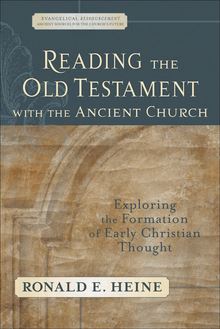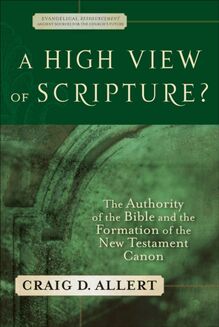-
 Univers
Univers
-
 Ebooks
Ebooks
-
 Livres audio
Livres audio
-
 Presse
Presse
-
 Podcasts
Podcasts
-
 BD
BD
-
 Documents
Documents
-
- Cours
- Révisions
- Ressources pédagogiques
- Sciences de l’éducation
- Manuels scolaires
- Langues
- Travaux de classe
- Annales de BEP
- Etudes supérieures
- Maternelle et primaire
- Fiches de lecture
- Orientation scolaire
- Méthodologie
- Corrigés de devoir
- Annales d’examens et concours
- Annales du bac
- Annales du brevet
- Rapports de stage
La lecture à portée de main
Vous pourrez modifier la taille du texte de cet ouvrage
Découvre YouScribe en t'inscrivant gratuitement
Je m'inscrisEvangelicals and Tradition (Evangelical Ressourcement) , livre ebook
Découvre YouScribe en t'inscrivant gratuitement
Je m'inscrisEn savoir plus
Vous pourrez modifier la taille du texte de cet ouvrage
En savoir plus

Description
Sujets
Informations
| Publié par | Baker Publishing Group |
| Date de parution | 01 juin 2005 |
| Nombre de lectures | 0 |
| EAN13 | 9781441206381 |
| Langue | English |
Informations légales : prix de location à la page 0,0634€. Cette information est donnée uniquement à titre indicatif conformément à la législation en vigueur.
Extrait
D. H. Williams, series editor
The Evangelical Ressourcement: Ancient Sources for the Church’s Future series is designed to address the ways in which Christians may draw upon the thought and life of the early church to respond to the challenges facing today’s church.
© 2005 by D. H. Williams
Published by Baker Academic a division of Baker Publishing Group P.O. Box 6287, Grand Rapids, MI 49516-6287 www.bakeracademic.com
Ebook edition created 2011
All rights reserved. No part of this publication may be reproduced, stored in a retrieval system, or transmitted in any form or by any means electronic, mechanical, photocopying, recording, or otherwise without the prior written permission of the publisher and copyright owners. The only exception is brief quotations in printed reviews.
ISBN 978-1-4412-0638-1
Library of Congress Cataloging-in-Publication Data is on file at the Library of Congress, Washington, D.C.
Unless otherwise indicated, Scripture quotations are from the Holy Bible, New International Version®. NIV®. Copyright 1973, 1978, 1984 by Biblica, Inc.© Used by permission of Zondervan. All rights reserved worldwide. www.zondervan.com
“There is a great need today to get behind the Reformers and rediscover the sources of their theology and piety. The substance of the great fathers of the church will propel evangelicals into a deeper level of theological thought and ecumenical dialogue. Evangelicals and Tradition will initiate that discussion and lead the way.”
Robert Webber, Myers Professor of Ministry, Northern Seminary
“In response to the pressures of modern culture, the church has dulled its message. But that message can regain its edge if evangelicals will listen to the demands of the gospel through the ears of the church fathers. Tradition used to be a ‘fightin’ word’ for Protestants, but Williams argues that, with the proper approach, tradition can be evangelicals’ ally instead of their enemy.”
David Neff, editor and vice president, Christianity Today
“Evangelicalism is best defined as a renewal movement within historic Christian orthodoxy. This volume explores a major wellspring of that renewal the evangelical appropriation of Christian tradition. It is an important contribution to theological ressourcement.”
Timothy George, dean, Beeson Divinity School; executive editor, Christianity Today
“The Protestant Reformation began as a call for the church catholic to receive the evangelical word of Scripture. Over time, evangelical Christianity lost its sense of catholicity. Williams has emerged as one of the leading voices of this generation calling for the retrieval of the evangelical catholic heritage of the Reformation. More importantly, he shows how to integrate the retrieved tradition into the theological reflections of contemporary evangelicalism. This book deserves to be widely read and wisely practiced.”
Curtis W. Freeman, research professor of theology and director, Baptist House of Studies, Duke Divinity School
“Williams has brought a new sense of engagement to the ancient task of relating Scripture, tradition, and spiritual experience. Evangelicals need to be reminded that there is a truly catholic tradition that goes back to the apostles that belongs to them as much as it does to other Christians. This book roots us in the living faith of every age and should be welcomed by everyone who wants to grow in the knowledge and love of Christ.”
Gerald Bray, Anglican professor of divinity, Beeson Divinity School, Samford University
To Cindy, Ryan, and Chad, who came with me to a different country and together journey still
C ONTENTS
Cover
Title page
Copyright page
Endorsements
Dedication
Series Preface
Preface
Introduction
1 Conversion and Construction
2 The Early Church as Canonical
3 The Confluence of the Bible, the Tradition, and the Church
4 Protestant Tradition and the Christian Tradition
5 Glimpses at the Resources of the Ancient Tradition
Postscript
Patristic Resources in English Translation
Index
Notes
S ERIES P REFACE
T HE E VANGELICAL R ESSOURCEMENT : Ancient Sources for the Church’s Future series is designed to address the ways in which Christians may draw upon the thought and life of the early church to respond to the challenges facing today’s church. The term ressourcement was coined by French Roman Catholic writers in the mid-twentieth century as descriptive of theological renewal that declared Christians must return to the sources ( ad fontes ) of the ancient Christian tradition. The operative assumption was that the church is apostolic (formed and directed by the Old and New Testaments) and also patristic (indebted to the intellectual and spiritual legacy of the fathers of the church). Much of our understanding of the Bible and theological orthodoxy, directly or indirectly, has come through the interpretive portals of the early church, which is an integral part of the Protestant identity, no less than it is for Roman Catholicism or Eastern Orthodoxy.
Using the methods and tools of patristic scholarship, each series volume is devoted to a particular theme related to biblical and theological interpretation. Similar to the past practices of ressourcement, this series is not seeking to appropriate the contributions of the early church in an idealized sense but through a critical utilization of the fathers as the church’s primary witnesses and architects for faithfully explicating the Christian faith. Series readers will see how (1) Scripture and the early tradition were both necessary for the process of orthodox teaching, (2) there is a reciprocal relationship between theology and the life of the church, (3) the liberty of the Spirit in a believer’s life must be balanced with the continuity of the church in history, and (4) the Protestant Reformation must be integrated within the larger and older picture of what it means to be catholic. In effect, it is the intention of this series to reveal how historical Protestantism was inspired and shaped by the patristic church.
As Protestantism confronts the postdenominational and, in many ways, post-Christian world of the twenty-first century, it is vital that its future identity not be constructed apart from the fullness of its historical foundations. Seminal to these foundations is the inheritance of the early church, “that true, genuine Christianity, directing us to the strongest evidence of the Christian doctrine” (John Wesley). Therein Christians will find not a loss of their distinctiveness as Protestants but, as the sixteenth-century Reformers found, the resources necessary for presenting a uniquely Christian vision of the world and its message of redemption.
P REFACE
A FTER READING THE reviews of a previously published book, [1] you develop a sense of which of your arguments were insightful and useful, which were probably wrong and need correction, and which ones you said too little about. Each of the three kinds of criticism are useful, but the most challenging of the three is the latter one because it reveals gaps and unfulfilled parts of your argument. For many of these insights I am grateful, and I have had the sense from nearly every reviewer that we are together engaged in a task of reenvisioning Protestantism that is not and must not be restricted by the anti-Catholic polemics of the sixteenth and seventeenth centuries (and that are still perpetuated today). It is time to move on.
My learned friend Peter Erb at Wilfrid Laurier University commented on the historical character of my book with the troubling words, “At the root of his book, however, Williams cannot avoid the challenge as posited by Cardinal Newman’s adage, ‘To be deep in history is to cease to be a Protestant.’” [2] Erb should know that he laid down the gauntlet with this remark, for in the end (though not the end of this particular book), I hope I am able to prove Newman wrong by showing that the necessity of appropriating doctrinal history in the preservation of Christian orthodoxy is no less true for the Protestant free church than it is for any other species of Protestantism. To be “deep in history” for evangelical Protestantism need not be and should not be oxymoronic. One should not have to leave evangelicalism or a believers’ church setting to be nourished by the substantial resources available in ancient (or patristic) Christianity. The great model for this undertaking was and is Philip Schaff, whose scholarly work of the last century in producing translations of the primary texts of church history, the early church especially, is a sufficient demonstration that any oxymoron between Protestantism and the whole of the church’s history is artificially self-imposed. It is not necessarily built into the original fabric of the Protestant spirituality. This can be welcome news to many believers who wonder about the seemingly empty content and ahistoricalism of their worship services. To redress the balance, this book presents evidence that is drawn from historical and theological resources. It may bring unaccustomed exercise to some, but I hope not frustration. Frankly, the only way to discover the wellspring of patristic resources is to present them in all their diversity and uniqueness.
Another challenge posed by my interlocutors on the subject of tradition has to do with how I halt more or less at the fifth century when it comes to identifying the church’s tradition. Like the nineteenth-century Oxford tractarians, my development of tradition was confined to the early church. Surely tradition continued after the Council of Chalcedon (451), a point I acknowledge but did not stress. At the time I was writing Retrieving the Tradition in 1998, it seemed like enough of an accomplishment to convince my free church and evangelical readers that there was a tradition that originally functioned cooperatively with scriptural testimony and that this tradition carried an authority that was necessary for defining the tru
-
 Univers
Univers
-
 Ebooks
Ebooks
-
 Livres audio
Livres audio
-
 Presse
Presse
-
 Podcasts
Podcasts
-
 BD
BD
-
 Documents
Documents
-
Jeunesse
-
Littérature
-
Ressources professionnelles
-
Santé et bien-être
-
Savoirs
-
Education
-
Loisirs et hobbies
-
Art, musique et cinéma
-
Actualité et débat de société
-
Jeunesse
-
Littérature
-
Ressources professionnelles
-
Santé et bien-être
-
Savoirs
-
Education
-
Loisirs et hobbies
-
Art, musique et cinéma
-
Actualité et débat de société
-
Actualités
-
Lifestyle
-
Presse jeunesse
-
Presse professionnelle
-
Pratique
-
Presse sportive
-
Presse internationale
-
Culture & Médias
-
Action et Aventures
-
Science-fiction et Fantasy
-
Société
-
Jeunesse
-
Littérature
-
Ressources professionnelles
-
Santé et bien-être
-
Savoirs
-
Education
-
Loisirs et hobbies
-
Art, musique et cinéma
-
Actualité et débat de société
- Cours
- Révisions
- Ressources pédagogiques
- Sciences de l’éducation
- Manuels scolaires
- Langues
- Travaux de classe
- Annales de BEP
- Etudes supérieures
- Maternelle et primaire
- Fiches de lecture
- Orientation scolaire
- Méthodologie
- Corrigés de devoir
- Annales d’examens et concours
- Annales du bac
- Annales du brevet
- Rapports de stage









